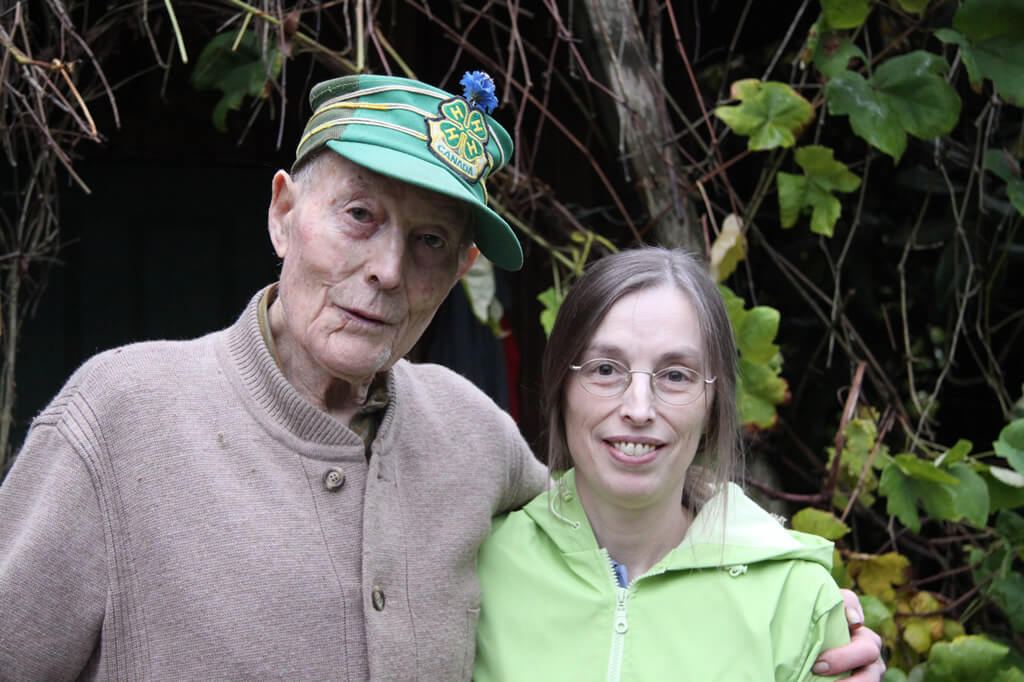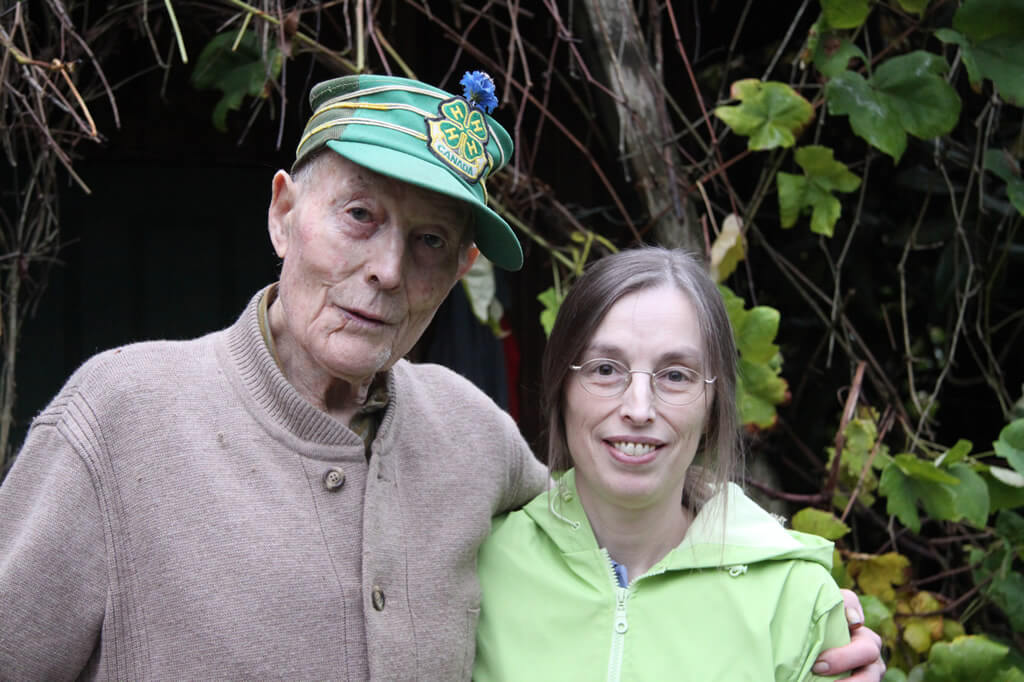Henry Otto: Survivor of Cardiac Arrest

How miracles do happen, along with a little help from medical technology
As long as I can pick blackberries, I will be O.K.,”says Henry. This summer, as he recovered from a full cardiac arrest which took place on June 26th, he went on to pick 230 pounds of blackberries in his back yard. “Close to what I picked last year”, he beams. The blackberry wine that he makes is proof of his labour. Delicious and full bodied. I sip a sample that is offered as I listen intensely to Henry and his daughter, Katharina as they recount the events of that terrible day.
Henry was working in his garden on a Tuesday afternoon in June when he suddenly didn’t feel well and felt chest pain. He came into the house and had a spoonful of his favourite brandy, Dujardin, thinking he had a touch of indigestion. “A small taste of brandy would usually do the trick”, he said.When his daughter, Katharina, asked himif he had pain, he said “yes”this time. This was unusual and right away she realized something was different.
“He usually protested if I said we should go to the hospital, but not this time,”she recalls. She took him right away to Lady Minto in her own car. She didn’t want to wait an extra minute for the ambulance. Henry had been treated for heart problems in the past and had a heart attack back in 1995, but something was terribly wrong that afternoon and they needed medical help urgently.
Dr. Barclay was on call that day and when Henry presented in the Emergency Room with chest pain, the medical team flew into action. He was moved onto a gurney, hooked up to a heart monitor and started an I.V. line. Shortly after that, Katharina reports her Dad collapsed in cardiac arrest and then “flat lined”. “He was technically dead but the medical staff defibrillated him right away. His heart responded and began to beat again but he remained unconscious for several hours. The doctors told me that he wouldn’t survive. When he regained consciousness, his short term memory was gone and he had little strength. By Friday of that week he was transferred to Victoria where he underwent stent surgery as well as an implant procedure with pacemaker and internal defibrillator.”
Henry does not remember the events until a few days after his heart attack. After he regained consciousness, his family doctor asked if Henry recognized him by name to test his cognitive function. After a few moments, Henry said: “the opposite of Schwartz”, which means black in his native German. Indeed, his family doctor was Dr. James White. Katharina explains that everything including his sense of humour improved once the stent was in place.
Katharina and Henry are both grateful for the technology that brought him back to life and gave him another chance. They are both very supportive of the community AED program which was spearheaded by the Foundation last winter, and know first-hand that defibrillators save lives.
As Katharina reflects on her experience, witnessing her father collapse and his heart stop beating, she is grateful for the medical expertise and equipment that was available to revive her father’s heart. But she also acknowledges the miracle that took place and answered her prayers. Not only was her father revived from a full cardiac arrest but he is now “back to his old self”. His short term memory has returned and he is still active. Henry notices a bit more fatigue but is grateful for this chance to be back in the garden, picking berries.

Leave a Reply
Want to join the discussion?Feel free to contribute!